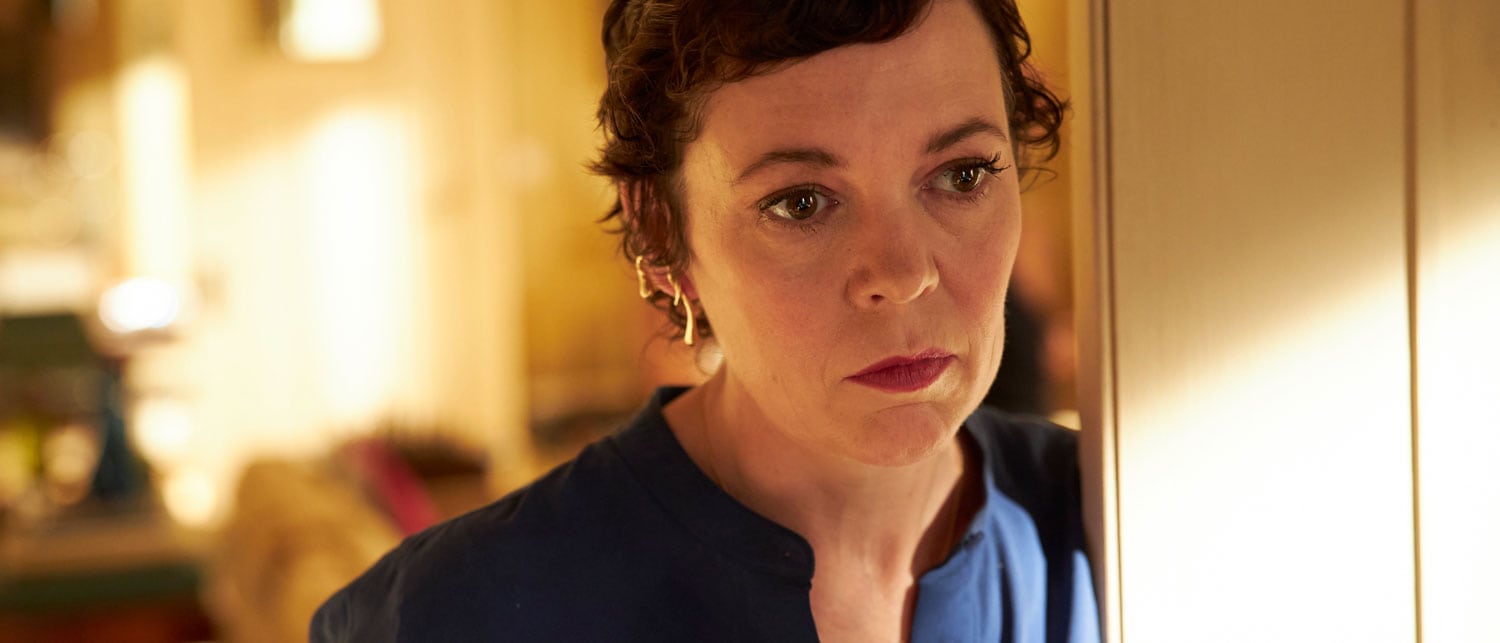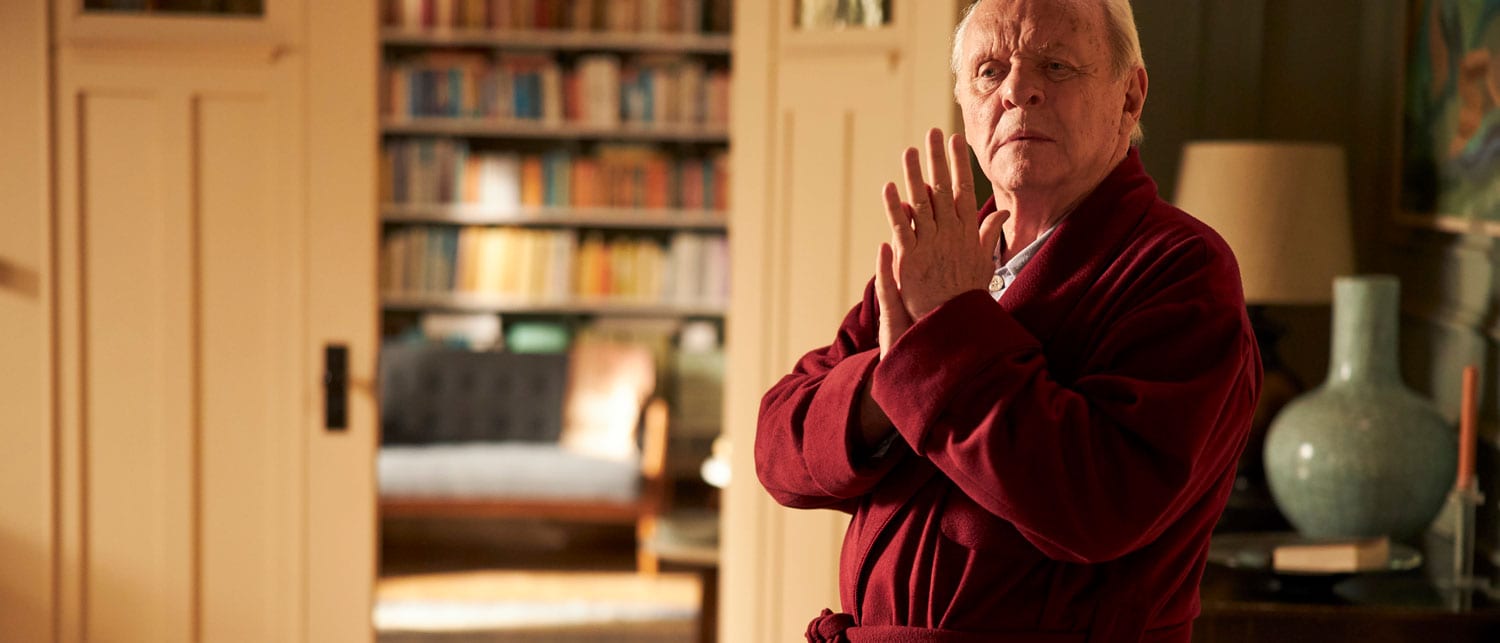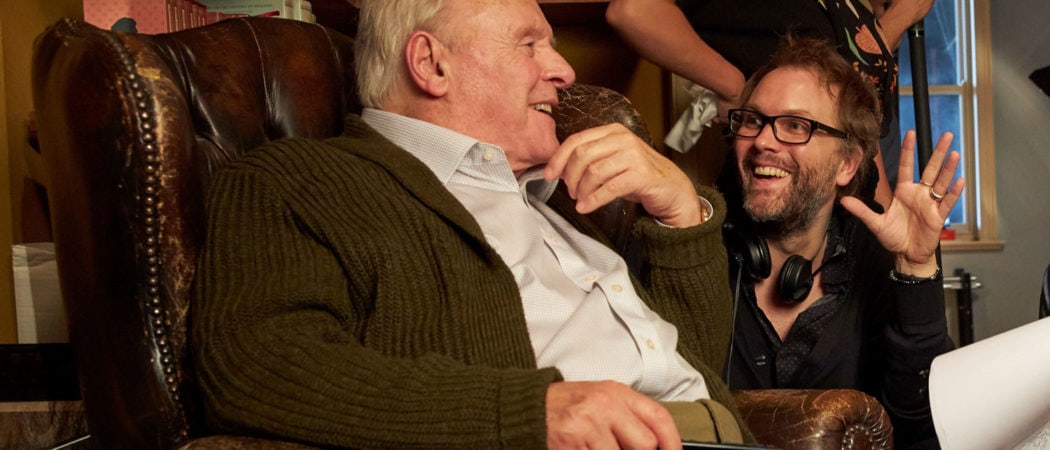After all this time, the film industry reached a landmark. We all know about the controversy surrounding Antony Hopkins being awarded Best Actor – but what is not always celebrated is that he is also thought to be the first actor who is openly Autistic to win such an award. The Father is in cinemas right now – should you consider going and watching it? Past this point, there are some spoilers – use caution before reading.
The Father’s trailer is Problematic By Way Of Marketing

Read more: His Dark Materials Gets Diversity Right – Here’s Why That Matters
If you see one of the trailers, you may be slightly misled into thinking that The Father is a film belonging to the psychological-thriller-mystery genre. We see Hopkins in his role thinking that his daughter (Olivia Coleman) – someone who seems to swap places with an almost identical double – is stealing from him, effectively taking over his flat and hounding him out of his home he has lived in for decades. Stereotypes of being old, of being frail, are cleverly played upon – and the way it is shot is to suggest that the daughter and her family are using these stereotypes against Hopkins’ character.
How wrong this is. How misleading of a trailer. On seeing The Father, a relative turned to me – to express they would not have seen the film, if they had been aware of the contents and the plotline. To say it is disturbing – but probably for the right reasons – is an epic understatement of sorts.
Production Is What Matters To Show The Condition

Credit: Film4
Read more: Tobey Maguire Rumoured To Want More Time Out Of The Spidey Suit In Spider-Man 3
This is a film – more of a character study, really – of a man who has to come to terms with his progressing condition of Dementia. If you are studying for English A levels – be it language or literature – then this is the kind of character study you’d likely find on your syllabus. It has the potential to be incredibly powerful, something that could re-shape our collective understanding of the condition and the impact on not just an individual, but a family left behind as well. It is an artistic way of production that is incredibly effective, if a little too close to home at times. Life is so short at times, and this is such a cruel condition. The way of production is what matters when it comes to showing the condition. The director and editor of the film need significant praise for the way they have executed this.
Sequentially when this The Father is viewed from start to finish, the audience undergo something of a transformation in terms of emotion and empathetic responses. When viewed, the fragmented approach sows suspicion, apprehension. You are made to feel sorry for the character of Hopkins at times – a mercurial performance of such, someone who can snap quickly into a powerful man with a commanding presence, one who takes issue with the patronising language of someone his daughter has hired to look after him. The frustration builds, particularly when it comes to the misplacement of a watch he believes to have been stolen. There are outbursts of anger, as well, which is to be expected.
The fragments that are used to construct this character study are incredibly effective. Characters blur, swap places, becoming muddled more and more from the viewpoint of the man who is experiencing a progression in Dementia. Until maybe three quaters of the way through the film, you think that this is still a film of someone undergoing a horrific crime. There’s a gradual ‘a ha’ moment that overtakes the audience when they realise that this is from the point of view of Hopkins’ character. Audiences are left suspended, not quite knowing what will happen next, unsure of what to expect.
The realisation becomes apparent with a scene featuring Mark Gaitss – ostensibly married to the character of Olivia Coleman – where a scene takes place of a misplaced memory of someone hitting Hopkins’ character, enough so he becomes incredibly upset. This performance, just in that ine scene lasting maybe three minutes, is worthy of a serious award with significant acting clout. It will render your insides to sadness, melting into a mushy puddle of mixed, complicated emotions completely and utterly. Hopkins’ should also be celebrated for busting some stereotypes right here; Autistic people are often characterised as being unfeeling, uncaring, lacking in empathy completely. This scene is cataclysmic.
We Need To Talk About The Father’s Ending And How We Talk About Death

Credit: Film4
Read more: The 10 Most Educated Hollywood Actors
A twist shows itself at the end. Hopkins’ character actually experienced the brutal death of his daughter – someone who begins showing up in fragments of memories that become tangled up together. It will make your heart hurt, as well as making you want to hold your relatives closer and to love harder.
Death is a part of life, yet we have not quite worked out a way to deal with death as a society, or even how to talk and deal with it. Mrs Death Misses Death was released as a landmark novel this year, yet not much can be said otherwise. This should be a gentle criticism of The Father – because although the way of production is amazing in portraying a cruel condition and its progression, dealing with death is intrinsically linked to this. This is just hinted at in the end, complete with a very abrupt ending. It’s a perfect ending, but there was scope for just a little bit more.
Hopkins’ character eventually finds himself in a care facility, one which has a view of the outside world. It’s a little clinical – but events come full circle, and he realises where he is. But, in a second, he is a little boy, crying for his mother to pick him up from school, huddled like a fetus and in need of comfort. The camera pans to the tree and the sun outside the little window, with an implication of time passing, and death coming to pass peacefully.
We have had to confront death by way of a pandemic – but there is scope to explore this more. It’s needed. Just be warned this film may well disturb you.
What do you make of our review of The Father?
What do you make of this story? Let us know in the comments below or on our Facebook, Twitter or Instagram pages! And if you enjoy listening to film podcasts, why not check out our podcasts, Small Screen Stories and Small Screen Film Club wherever you get your podcasts!















There are no comments
Add yours